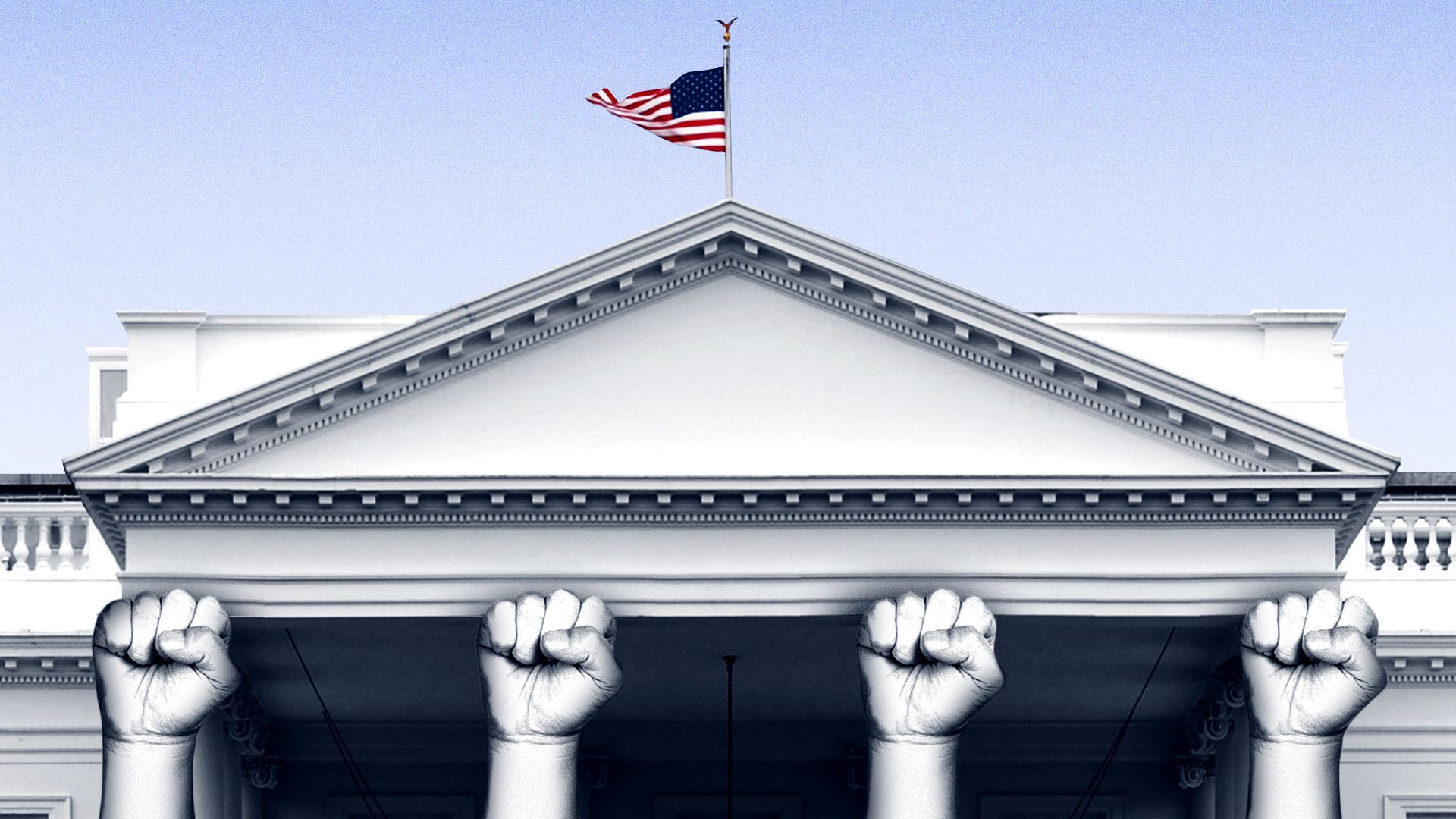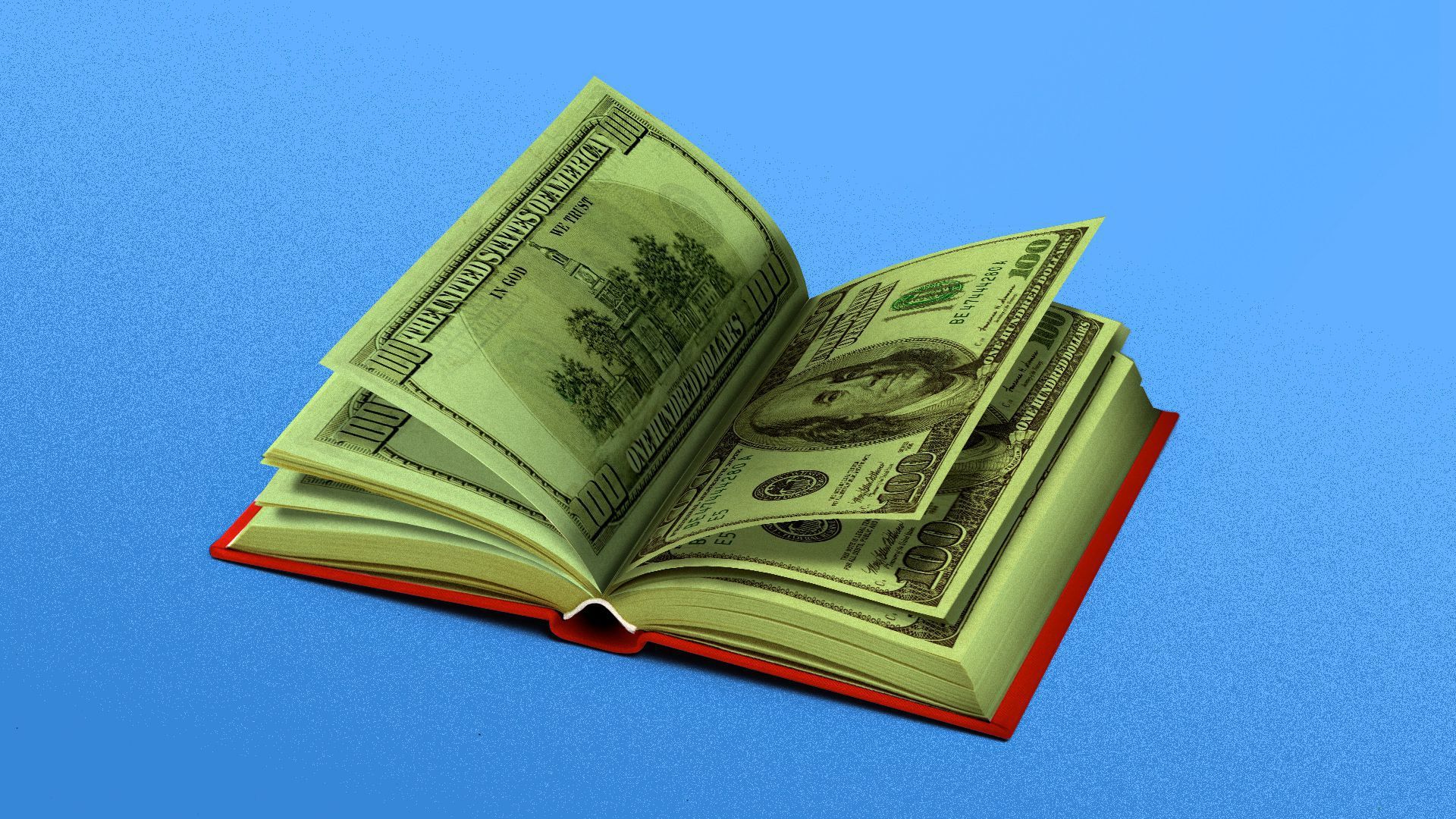| | | | | | | Presented By MOXY | | | | Axios Markets | | By Emily Peck and Matt Phillips · Jan 06, 2023 | | 👋 It's jobs day! Also, the hunt for a Speaker of the House continues. If you think watching the House Republicans repeatedly frustrate Kevin McCarthy's career ambitions is good television, just wait till the fractious majority is faced with raising the debt ceiling, to avoid a national debt default that could set off a financial crisis. Thoughts, feelings, or nagging questions about the market? Email me at matt.phillips@axios.com. Today's newsletter is 1,169 words, 4.5 minutes. | | | | | | 1 big thing: White House's latest pro-labor push |  | | | Illustration: Annelise Capossela/Axios | | | | One of the broadest and most pro-worker initiatives to come out of the Biden administration dropped from a somewhat surprising place yesterday: The Federal Trade Commission proposed a broad ban on noncompete agreements, which companies use to prevent workers from taking jobs with competitors, Emily writes. Why it matters: It's a big swing for the administration and the FTC, which has taken a more aggressive stand on anti-competitive practices under Biden-appointee Lina Khan. Some experts say the rule might get knocked down in court. - If enacted, the ban could radically shift the balance of power between employers and workers across just about every industry and pay level — from fast-food jockeys to doctors to CEOs.
- Even the most senior executives would not be able to contract around the rule, an FTC official tells Axios.
How it works: Though lawyers say noncompete agreements are hard to enforce in court, these situations rarely escalate to litigation — instead, the noncompetes have a chilling effect. - Both prospective employers and the workers themselves can be scared off just by the existence of a noncompete. That leaves many workers stuck, potentially unable to obtain a new job for more money, use an offer to negotiate for a raise, or simply advance in their careers.
- Even low-wage workers get caught in these contracts: 12% of workers who earn $20 per hour or less reported having a noncompete agreement in their current or most recent job, according to research from the Federal Reserve Bank of Minneapolis. It's 18% among those who earn more.
Between the lines: Restricting noncompetes appears to raise worker pay, according to research from a couple of states that have moved to do so. - Proponents say it's also good for business. They point to California, which prohibits these agreements. Silicon Valley has thrived in part because companies can poach talent, and engineers can job-hop and start their own businesses.
The other side: Employers argue they need noncompetes to protect trade secrets. - But for entry-level or low-wage workers — like sandwich makers or camp counselors — it's harder to understand what kind of proprietary information they might have.
Case study: When journalist Stephanie Russell-Kraft took her first journalism job in 2013 at the age of 25, she had to sign a noncompete and was told it wasn't a big deal, she recalled to Axios. It only applied to freelancing, she believed. - But when she took a better job at another publication, her previous employer flagged the agreement to her new company. Days later she was fired from her new job.
- It took years for her to find full-time work. "It completely reshaped my career," she says. (Ultimately, the New York State attorney general settled a case with her employer, who agreed to stop using noncompetes.)
What's next: The FTC is asking for comments on the proposal, and observers expect a court fight at some point. Go deeper |     | | | | | | 2. Catch up quick | | 📉 Eurozone inflation eases in December on lower energy prices. (NYT) 💰 Shell expects to pay $2.4 billion in new windfall taxes in the EU and U.K. (FT) 🐦 Researcher: Hackers leaked 200 million Twitter email addresses. (Reuters) |     | | | | | | 3. 🚘 Fewer autos, bigger profits for carmakers |  Data: FactSet; Chart: Axios Visuals Sometimes you can make more by making less, Matt writes. Driving the news: Carmakers sold just shy of 14 million new vehicles in 2022, according to new data out Wednesday. That's well below the nearly 18 million annual sales rate in the years before the pandemic. The intrigue: Intuitively, it may seem that falling sales would be bad for business. But as we've talked about before, that's not always the case. - In fact, the pandemic seems to have pushed the U.S. auto business away from its previous habit of overproducing cars and then discounting them to move them off the lot. Carmakers' new business model stresses low production, high prices and fat profit margins.
Case in point: Through the third quarter, profits in the category of domestic manufacturers that includes automakers were at their highest level since 2016 ($32 billion), according to data from the Bureau of Economic Analysis. The bottom line: Consumers now have fewer choices at higher prices. - Consumer Price Index data from November shows they were paying about 20% more for new vehicles than in late 2019 before the pandemic hit.
- The average new vehicle sold for just under $49,000 in November, according to Kelley Blue Book.
|     | | | | | | A message from MOXY | | Tired of the Ranting Echo Chambers? | | |  | | | | MOXY puts real political savvy at your fingertips with: - Issue-based forums.
- Personalized politician directory.
- Legislation
- And much more.
Try MOXY Free for 30 days or get a MOXY Premium 60-day upgrade with our compliments using code AXIOS2023. Get started. | | | | | | 4. 💣 The crypto comeuppance continues |  Data: FactSet: Chart: Axios Visuals Another busy day in crypto's implosion, Matt writes. Driving the news: Where to begin? - Crypto lender Genesis laid off about 30% of its staff and is contemplating bankruptcy, the WSJ reported yesterday.
- New York's attorney general sued the co-founder and ex-CEO of another collapsed crypto high-yield lender, Celsius Network, Alex Mashinsky, alleging he schemed to defraud hundreds of thousands of people with false claims that induced them to deposit money at his firm, as the NYT reported.
- Shares of Silvergate, a crypto-focused bank in California, crashed by 43% yesterday after it disclosed that its customers had yanked more than $8 billion — about 70% of their money — in deposits during the fourth quarter of last year, according to Reuters. (Silvergate is down almost 95% since from its peak, destroying roughly $5 billion in market value.)
💭 Our thought bubble, via Axios' Felix Salmon: Genesis and Celsius were big bets on crypto going up in value. Silvergate was meant to be different — a fully-regulated ultra-safe bank providing the crucial link between the crypto and fiat worlds. Even so, it suffered one of the biggest bank runs in U.S. history. The bottom line: "Putting it all together, we believe investor confidence in crypto as an asset class has been shaken," wrote Goldman Sachs analysts who cover Silvergate, in a note published yesterday. |     | | |  | | | | If you like this newsletter, your friends may, too! Refer your friends and get free Axios swag when they sign up. | | | | | | | | 5. Elliott's bookstore playbook |  | | | Illustration: Aïda Amer/Axios | | | | We know the story: Private equity buys an iconic physical retailer, cuts costs, and either bankrupts the place or leaves it on life support, Axios' Dan Primack writes. - But a different narrative is emerging with Barnes & Noble, the U.S. bookseller taken private in 2019 for $683 million by Elliott Management.
Driving the news: B&N is committing to opening more than 30 new physical locations in 2023, following its first year of net store growth in more than a decade. - This includes some openings in locations abandoned last year by Amazon (i.e., the mortal enemy of physical booksellers), when it closed all of its Amazon Books stores.
Behind the scenes: Elliott certainly followed the private equity playbook to some extent, cutting layers of corporate management and related expenses (including office space). But its primary thesis was to let B&N operate more like ... well, more like bookstores. - It was a learning from Elliott's prior takeover of U.K.-based Waterstones, whose CEO James Daunt was also put in charge of B&N (even though the two companies operate independently).
By the numbers: For the final full year prior to acquisition, B&N reported $108 million in EBITDA on a $125 million net loss and around $3.6 billion in revenue. - A source close to the situation says the bottom line is significantly stronger today than it was then.
Read the full story. |     | | | | | | A message from MOXY | | Real political savvy at your fingertips | | |  | | | | Tired of the ranting echo chambers? MOXY has smarter discourse via issue-based forums, a broad-spectrum newsfeed, personalized politician directory, legislation, ballot info, surveys and more. Try MOXY Free for 30 days or get a MOXY Premium 60-day upgrade using code AXIOS2023. Learn more. | | | | Was this email forwarded to you? Sign up here to get Axios Markets in your inbox. Today's newsletter was edited by Kate Marino and copy edited by Mickey Meece. |  | | Why stop here? Let's go Pro. | | | | | | Axios thanks our partners for supporting our newsletters.
Sponsorship has no influence on editorial content. Axios, 3100 Clarendon Blvd, Arlington VA 22201 | | | You received this email because you signed up for newsletters from Axios.
To stop receiving this newsletter, unsubscribe or manage your email preferences. | | | Was this email forwarded to you?
Sign up now to get Axios in your inbox. | | | | Follow Axios on social media:    | | | | | |











No comments:
Post a Comment